Even though Slaughterhouse Five was the first Vonnegut book I ever read, the only one I have taught is Cat's Cradle. Articles like this inspire me to consider teaching Vonnegut again. Also, it's a bucket list project to own copies of all the Vonnegut and read it all as well as re-read some favorites, like the two aforementioned books along with Sirens of Titan, Mother Night, and Player Piano.
Arguably, I am weak on the books starting in the late 1970s.
I have a copy of Wampeters, Foma and Granfalloons (1974) on my Kindle and have read only a little of it.
One of the best author events I have ever attended was to hear Vonnegut speak.
I wish he was still with us.
https://en.wikipedia.org/wiki/Kurt_Vonnegut
https://bookmarks.reviews/the-first-reviews-of-slaughterhouse-five/
The First Reviews of Slaughterhouse-Five
ON THE OCCASION OF THE
FIFTIETH BIRTHDAY OF VONNEGUT'S MASTERPIECE
April 1, 2019 By Book Marks
Everything was beautiful and
nothing hurt.
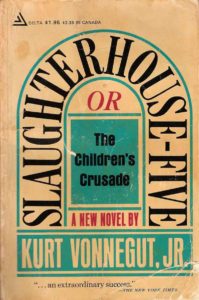 A half-century ago this week,
Kurt Vonnegut’s Slaughterhouse-Five—a darkly comic, throughly batshit,
semi-autobiographical anti-war novel about a fatalistic young American soldier
who survives the firebombing of Dresden and becomes “unstuck in time”—was first
published. A bestseller upon its release, the book has gone on to become one of
the most beloved and influential (not to mention challenged) works of
contemporary American fiction. It has also enjoyed a storied pop culture life,
appearing or being namechecked in everything from The Wonder Years to The Simpsons, Footloose to Varsity Blues.
There was even a 90s folk-rock duo called Billy Pilgrim who weren’t half bad.
A half-century ago this week,
Kurt Vonnegut’s Slaughterhouse-Five—a darkly comic, throughly batshit,
semi-autobiographical anti-war novel about a fatalistic young American soldier
who survives the firebombing of Dresden and becomes “unstuck in time”—was first
published. A bestseller upon its release, the book has gone on to become one of
the most beloved and influential (not to mention challenged) works of
contemporary American fiction. It has also enjoyed a storied pop culture life,
appearing or being namechecked in everything from The Wonder Years to The Simpsons, Footloose to Varsity Blues.
There was even a 90s folk-rock duo called Billy Pilgrim who weren’t half bad.
Before it joined the ranks of
the immortals, though, Slaughterhouse-Five had to run the book review gauntlet just like any other
novel. Below, we look back at five of the earliest critical takes.
“Kurt Vonnegut Jr., an
indescribable writer whose seven previous books are like nothing else on earth,
was accorded the dubious pleasure of witnessing a 20th-century apocalypse.
During World War II, at the age of 23, he was captured by the Germans and
imprisoned beneath the city of Dresden, ‘the Florence of the Elbe.’ He was there
on Feb. 13, 1945, when the Allies firebombed Dresden in a massive air attack
that killed 130,000 people and destroyed a landmark of no military
significance.
Next to being born, getting
married and having children, it is probably the most important thing that ever
happened to him. And, as he writes in the introduction to Slaughterhouse-Five, he’s been trying to write a book about
Dresden ever since. Now, at last, he’s finished the ‘famous Dresden book.’
In the same introduction, which
should be read aloud to children, cadets and basic trainees, Mr. Vonnegut
pronounces his book a failure ‘because there is nothing intelligent to say
about a massacre.’ He’s wrong and he knows it.
Kurt Vonnegut knows all the
tricks of the writing game. So he has not even tried to describe the bombing.
Instead he has written around it in a highly imaginative, often funny, nearly
psychedelic story.
The odd combination of fact and
fiction forces a question upon the reader: how did the youth who lived through
the Dresden bombing grow up to be the man who wrote this book? One reads Slaughterhouse-Five with that question crouched on the
brink of one’s awareness. I’m not sure if there’s an answer, but the question
certainly heightens the book’s effects.
“I
know, I know (as Kurt Vonnegut
used to say when people told him that the Germans attacked first). It sounds
crazy. It sounds like a fantastic last-ditch effort to make sense of a lunatic
universe. But there is so much more to this book. It is very tough and very funny; it is sad and
delightful; and it works. But is also very Vonnegut, which mean you’ll either
love it, or push it back in the science-fiction corner.”
“We live in an age of great
seriousness. We are accustomed to getting our art in heavy, pretentious doses.
Anything funny is suspect, and anything simple is doubly suspect. Here we come
to the second difficulty with Kurt Vonnegut. His style is effortless, naive,
almost childlike. There are no big words and no complicated sentences. It is an
extraordinarily difficult style, but that fact is lost on anyone who has never
tried to write that way.
…
“He writes about the most excruciatingly
painful things. His novels have attacked our deepest fears of automation and
the bomb, our deepest political guilts, our fiercest hatreds and loves. Nobody
else writes books on these subjects; they are inaccessible to normal novelistic
approaches. But Vonnegut, armed with his schizophrenia, takes an absurd,
distorted, wildly funny framework which is ultimately anaesthetic. In doing so,
his science fiction heritage is clear, but his purposes are very different: he
is nearly always talking about the past, not the future. And as he proceeds,
from his anaesthetic framework, to clean the shit off, we are able to cheer him
on—at least for a while. But eventually we stop cheering, and stop laughing.
…
“A
Vonnegut book is not cute or precious. It is literally awful, for Vonnegut is
one of the few writers able to lift the lid of the garbage can, and
dispassionately examine the contents. In Slaughterhouse-Five, the author quotes his father as saying,
“You never wrote a story with a villain in it.” This may be true, but Vonnegut
never wrote a story with a hero in it, either. In Slaughterhouse-Five he also says, ‘Nobody was ridiculous
or bad or disgusting,’ and it is within this framework that he writes about an
event that should qualify for all those adjectives— the firebombing of Dresden,
which Vonnegut experienced as a prisoner of war in Germany.
There is every indication that
this book represents, for Vonnegut, a final statement of his thoughts about
this experience. He says so explicitly, just as he says the project is doomed
to failure (‘There is nothing intelligent to say about a massacre’). The book
also brings together characters and locales from other books—Howard W.
Campbell, Jr., Eliot Rosewater, and Ilium, N.Y., giving the novel a faintly
anthological flavor. The book is written in the brief segmental manner he
developed in Cat’s Cradle, organized as a collection of impressions, scattered
in time and space, each told with the kind of economy one associates with
poetry. It is beautifully done, fluid, smooth, and powerful.
There is also some business
about a distant planet and flying saucers, but that does not make the book
science fiction, any more than flippers make a cat a penguin. In the final
analysis the book is hideous, ghastly, murderous—and calm. There are just
people, doing what people usually do to each other.”
“Kurt Vonnegut introduces his seventh novel, Slaughterhouse-Five, apologetically, calling it a failure. Coming from most writers, an apology like that would be inadequate; a writer can always take a vow of permanent abstinence from writing, and there is a shortage of cabdrivers. Mr. Vonnegut’s penitential gesture is objectionable because it implies that he might have succeeded in solving a problem that he properly represents as insoluble. In 1945, a German prisoner of war, he lived through the American and British bombing of Dresden, in which a hundred and thirty-five thousand people died—nearly twice as many, he notes, as were killed by the atomic bombing of Hiroshima, whose devastation was at least officially honored by a Presidential announcement. Slaughterhouse-Five is Vonnegut’s tribute to the strain imposed on his conscience by the fact that he survived, and by his increasing awareness, since the war, of the scope and variety of death. The vibrant simplicity of the book to which he finally surrendered his emotion makes his apology seem disingenuous, like Alexander the Great putting himself down for not dedicating his life to untying the Gordian knot. Besides, any book that is touted as a ‘masterpiece,’ ‘long-awaited,’ and ‘twenty years in the making’ can’t be all bad if it turns out to be just a neat hundred and eighty-six pages long.
Acknowledging the rich past and
the bright prospects of death, Vonnegut cuts through his prodigious obsession
with calculated diffidence, offering a lament and a protest in the disguise of
a fable with no moral.
…
“In the opening chapter,
Vonnegut vouches for the truth of the Second World War characters and incidents
in Slaughterhouse-Fiveand then proceeds to demonstrate, by
exchanging feeling for outer-spatial detachment, how outrageous the truth is.
Under cover of the bland narration, the facts and the science fiction are
equally plausible, but blandness gives characters like the crazy colonel and
the forty-year-old ex-hobo an edge over the Tralfamadorians, who are, after
all, green and shaped like plungers. Vonnegut concedes the difference, in
effect, by interrupting the story of Billy Pilgrim twice to say, ‘I was there.’
The short, flat sentences of
which the novel is composed convey shock and despair better than an array of
facts or effusive mourning. Still, deliberate simplicity is as hazardous as the
grand style, and Vonnegut occasionally skids into fatuousness.”
“A bullet makes a small to
entry and a messy exit. Enormities in the mind do the same. ‘Everything is
supposed to be very quiet after a massacre and it always is, except for the
birds. And what do the birds say? All there is to say about a massacre, things
like “Poo-tee-wee.” ‘ So how is the mind to cope with an experience like Dresden
where it is known, if not comprehended, that 130,000 civilians were incinerated
overnight and the huddled survivors shot up next morning? The oddest and most directly and obliquely
heart-searching war book for years proves how art, in its own good time, can
find a way. Here is war as a ridiculous ogre trapped by its own
braces on the pillars of the firmament. Here are the dead of Dresden. Catch-22 was a splendid, savage but abstract
joke compared with the irony and compassion of Mr Vonnegut’s.
…
“It is a stark and comic
rendering of scarecrow men-children as lost in war as the babes of the
Children’s Crusade who were fodder for African slave-markets when they thought
they were bound for the Holy Sepulchre. It is the story of mind crying Stop! to
Time before the corpses fill the corpse mines, and of gangling Billy Pilgrim,
later successful optometrist of Ilium, Ill., former Chaplain’s assistant taken
prisoner before there was time to fit him out with boots; who survived Dresden
in an underground abattoir and had, somehow to live with it.
He becomes a time-traveller, is
taken by the little green men to their planet, taught not to fuss so when there
is no beginning or end, no moral, no cause or effects; just bugs in the amber
of eternal Now. The time warp throws up jumbled memories, precognitions,
visions. With the new eyes he sees Dresden in reverse, the fires dying out,
buildings reconstructed, bombs sucked back into bomb-bays, shipped home ‘where
factories were operating night and day, dismantling the cylinders, separating
the dangerous contents into minerals. Touchingly it was mostly women who did
this work. The minerals were then shipped to specialists in remote areas. It
was their business to put them into the ground, to hide them cleverly, so they
would never hurt anyone ever again.’
In the rubble of liberated
Dresden a released American is shot by Americans, for purloining a teapot.
Billy’s hippy son straightens out, becomes a Green Beret. Truman applauds the
A-bomb; a pre-war guide points out Dresden’s charms – sequence and order are
immaterial to the time-traveller who is now naked in a cage on Tralfamadore
with a movie queen, now excavating the bodies until it is decided to seal them
in. The frontispiece carries a verse from ‘Away in a manger’ and nothing in
this devastating and supremely human book makes it seem out of place.”
“Slaughterhouse-Five,
with its time jumps, trips to other planets, the firebombing of Dresden, and
the casual mingling of the current history of the author with that of his
fictional world, remains, when all of its wearisome inventiveness is done, one of the most unsurprising, self-indulgent
little books ever to work so hard at being selfless and memorable. Not
one character emerges from it with anything like the grotesque clarity which,
say, Malaparte gave to a briefly encountered soul caught in the inferno of
World War II; not one attitude in all of Vonnegut’s darkly humorous anecdotes
of life and death stays in the mind except the infantile stoicism exemplified
by the recurrent and infuriatingly Olympian phrase ‘and so it goes.’ There is
no intimation in this book of a sensibility which understands what is relevant
to the conjunction of history and personal imagination, understands, finally,
how carefully balanced a book must be that wishes to encompass the annihilation
of millions and the mental caprices of one dull hero.
…
“It would be unjust to harp on
the conclusions of Vonnegut’s mental odyssey through Slaughterhouse-Five if
the voyage itself had had some interest. After all, a book is under no
obligation to come to any conclusion at all about itself. Slaughterhouse-Five, however, seems to be
nothing else but conclusion. The tone of judgment surrounds all the events of
the book, jostling the reader again and again into an atmosphere of self-pity,
into moments thick with unearned, lyrical agonies. Along the way, Vonnegut
tries to come up with a moment or two to justify his reputation as a black
satirist. But his imagination is not so much antic as it is willful, an
imagination which does not disguise the fact that, however swaggering and
adventurous in tone, it is in the service of a moralist too easily satisfied
that the world confirms his point of view. This might be artistically excusable
if that point of view were at all complex or idiosyncratic, but it is, rather,
much too obvious and commonplace to need so much baroque substantiation. For
all his notoriety, Vonnegut never really goes further than the poor estimate
society has about itself even in its most official pronouncements. He therefore
stops where an intelligent imagination ought to begin.”
+++++++++++++++++++++++++++++++++++++++++++++++++++++++++++++++++++++++
+++++++++++++++++++++++++++++++++++++++++++++++++++++++++++++++++++++++
+++++++++++++++++++++++++++++++++++++++++++++++++++++++++++++++++++++++
- Bloggery committed by chris tower - 1905.28 - 10:10
- Days ago = 1424 days ago
- New note - On 1807.06, I ceased daily transmission of my Hey Mom feature after three years of daily conversations. I plan to continue Hey Mom posts at least twice per week but will continue to post the days since ("Days Ago") count on my blog each day. The blog entry numbering in the title has changed to reflect total Sense of Doubt posts since I began the blog on 0705.04, which include Hey Mom posts, Daily Bowie posts, and Sense of Doubt posts. Hey Mom posts will still be numbered sequentially. New Hey Mom posts will use the same format as all the other Hey Mom posts; all other posts will feature this format seen here.
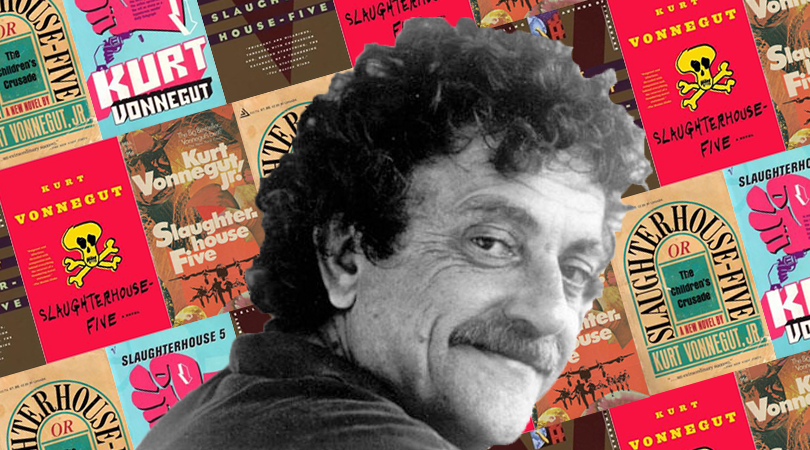
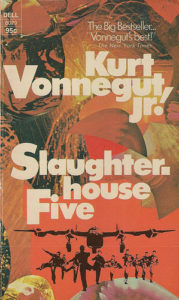

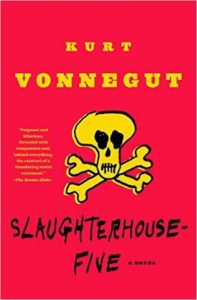
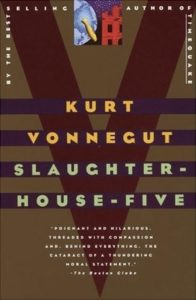
No comments:
Post a Comment